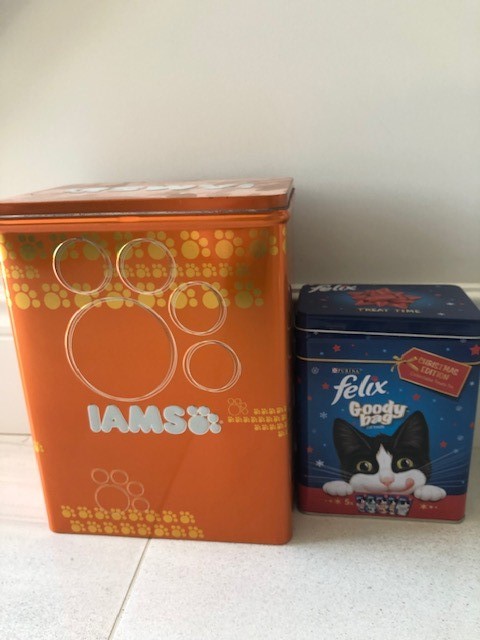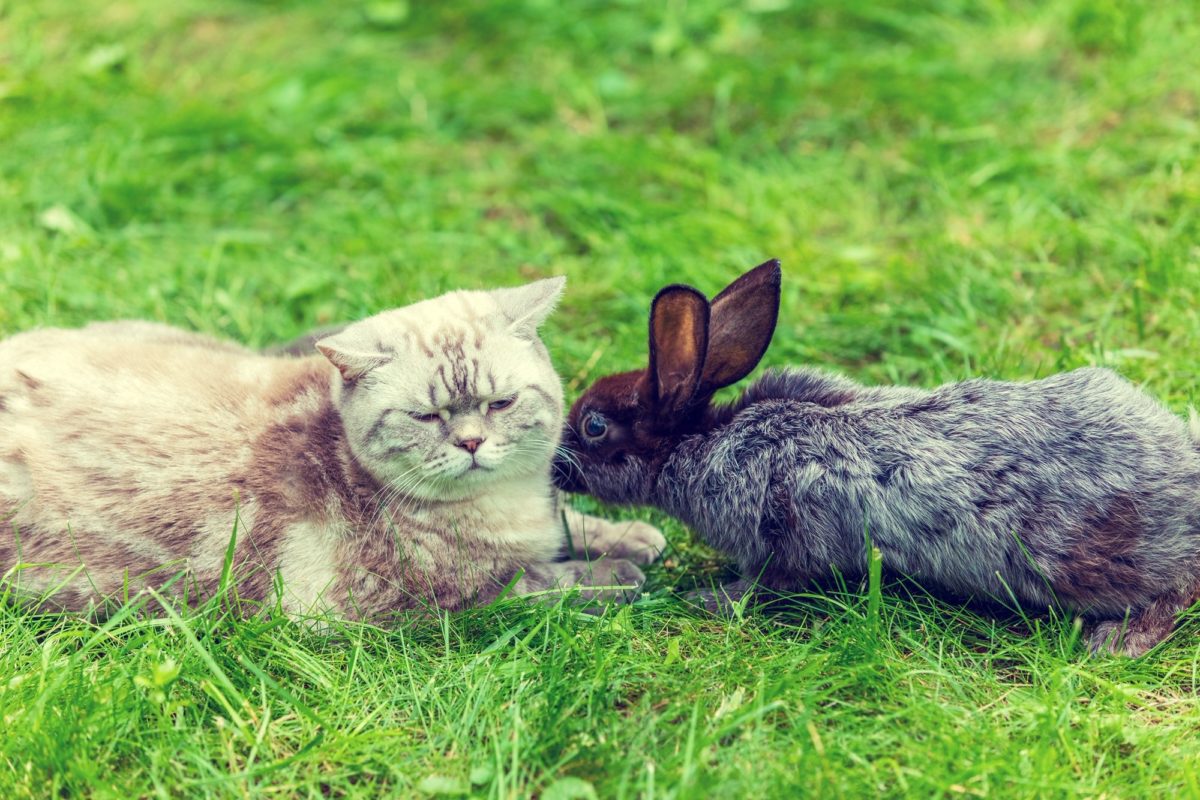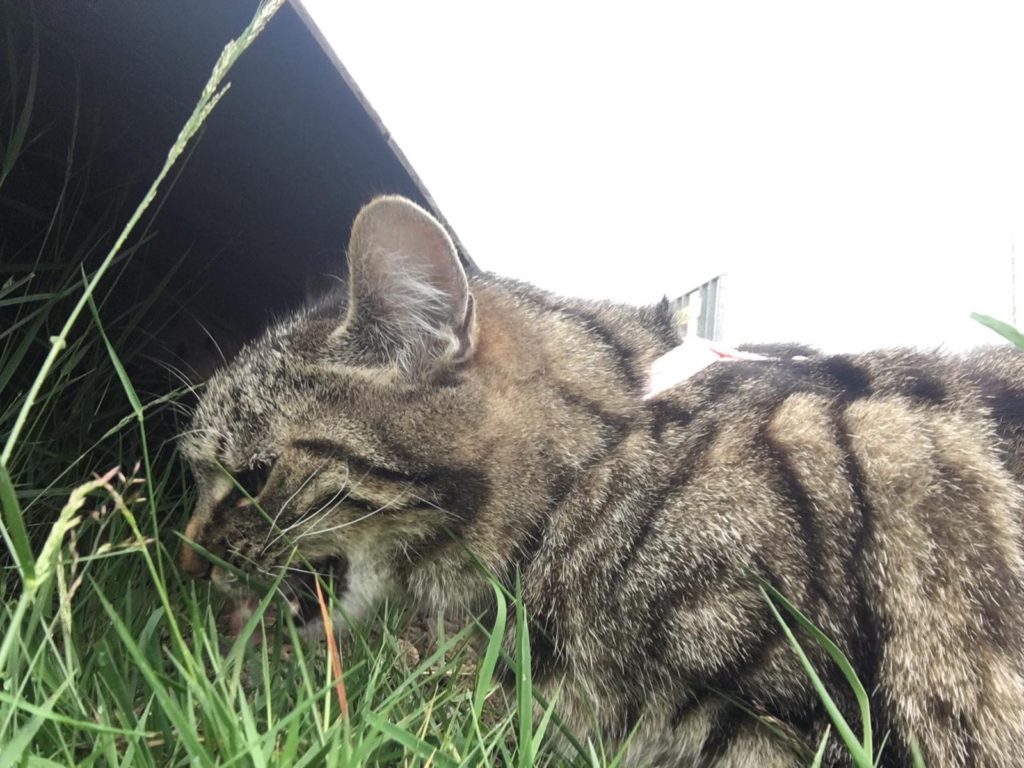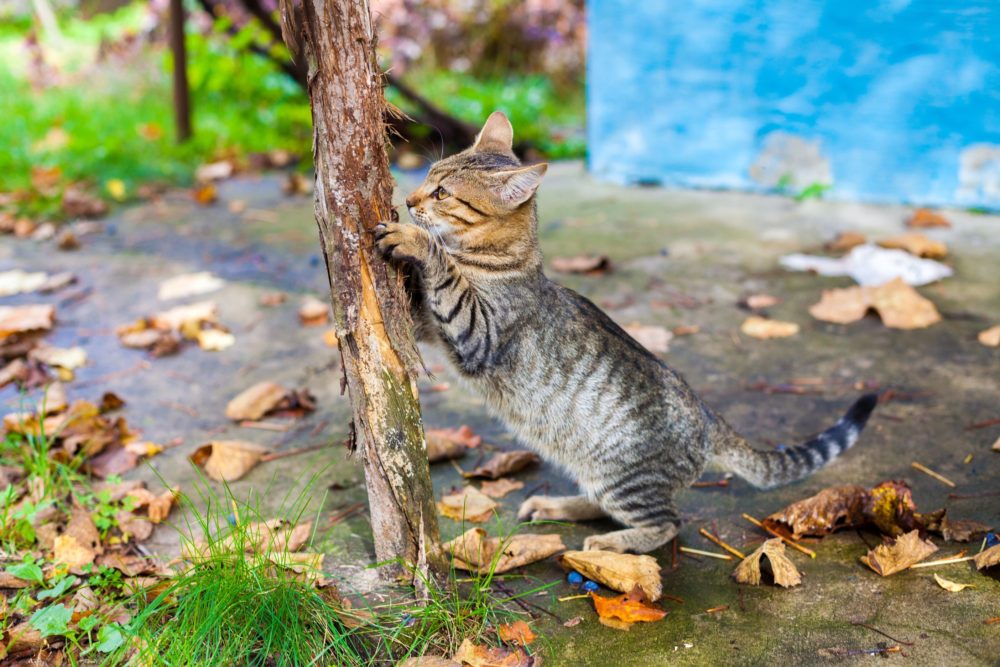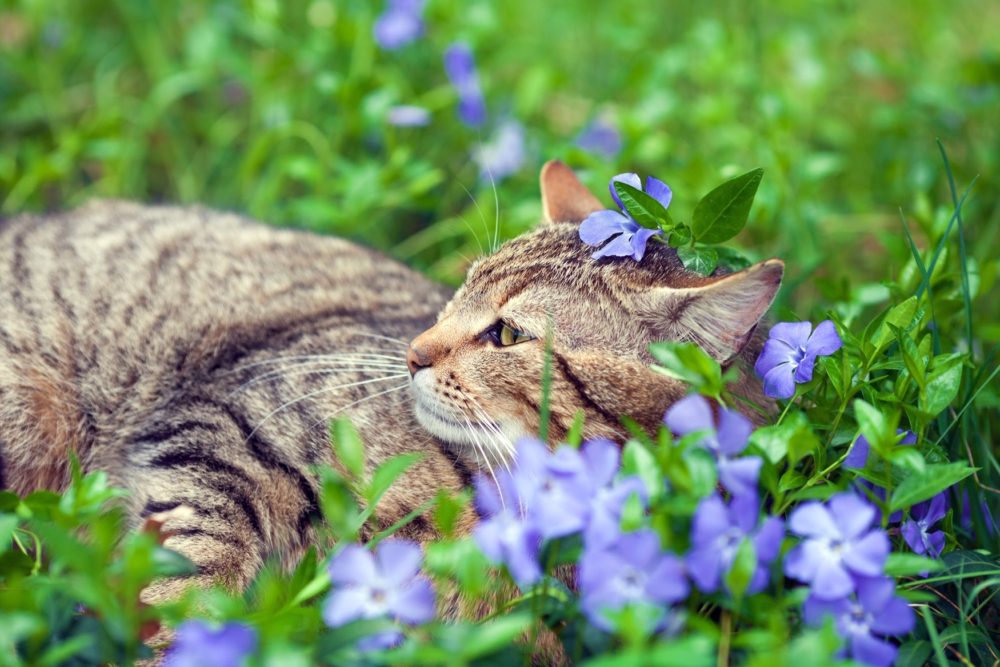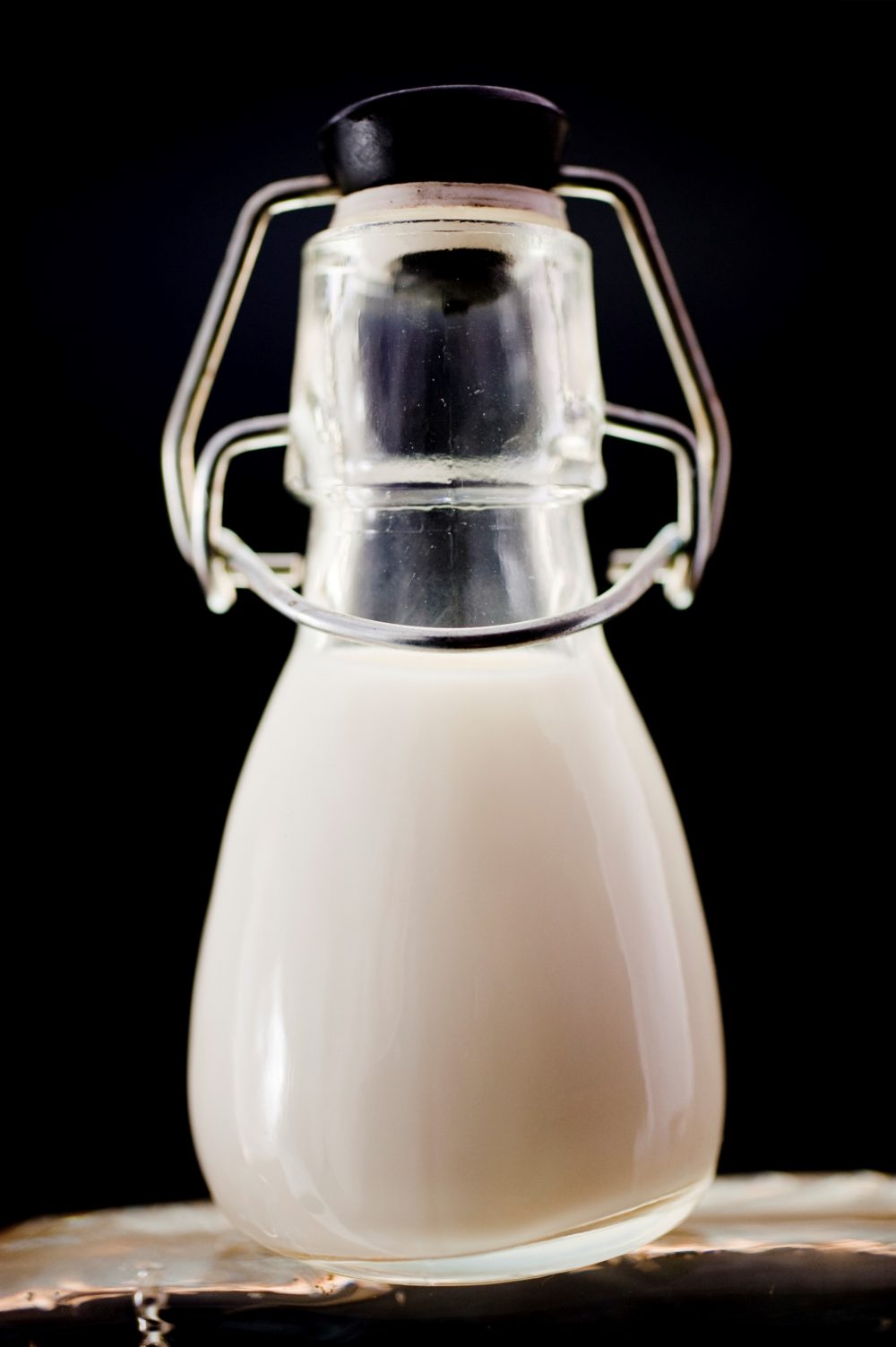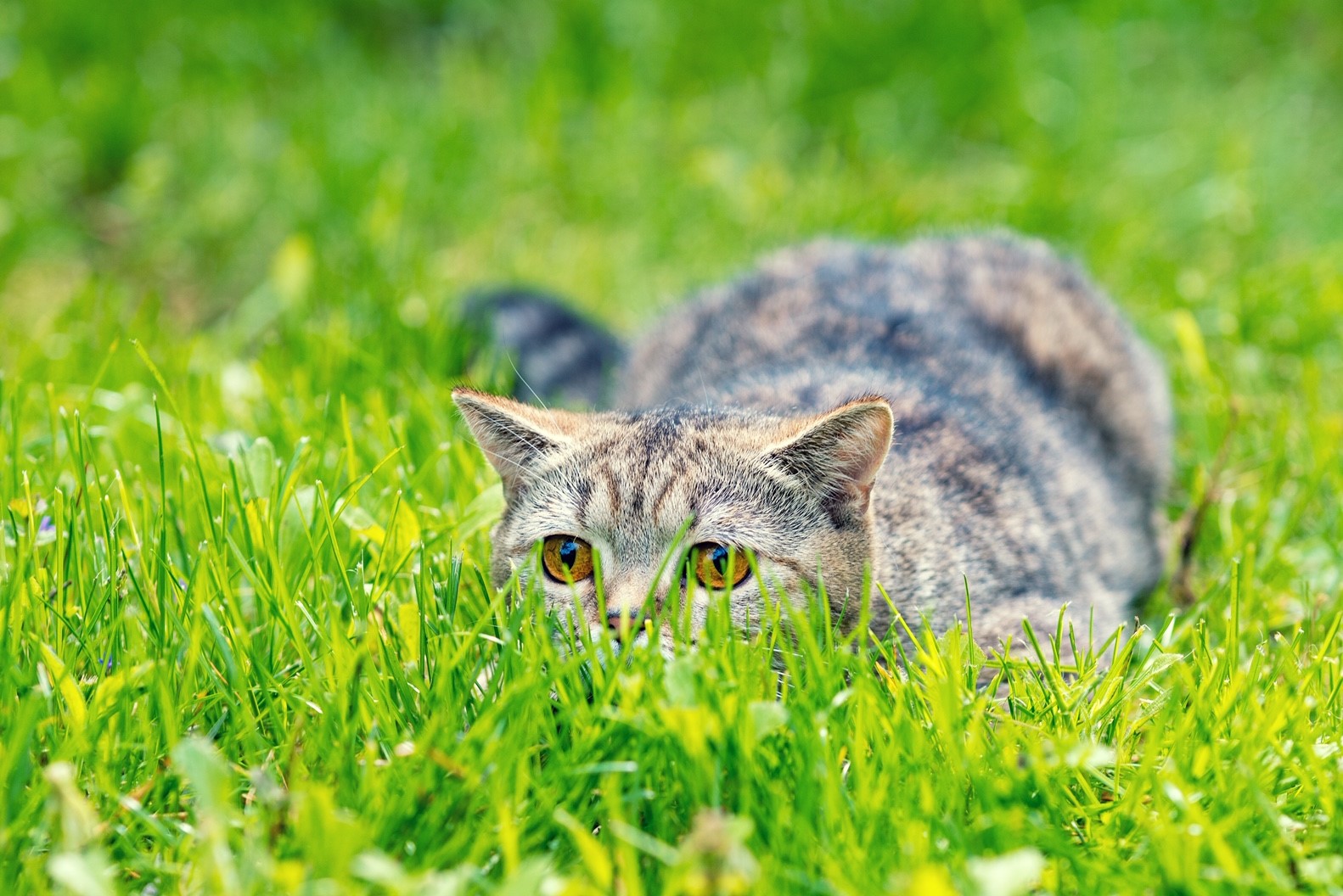
Do indoor cats need to eat grass? Cat grass benefits
Our cat family includes one outdoor cat and one indoor cat. Several events and factors have led us to this scenario but the ultimate goal that every cat owner strives for has been achieved – we have two very happy, contented kitties. The indoor/outdoor cat debate is a contentious issue, but at the end of the day, each one of us simply want the best for our cats and kittens. Our rather unique scenario has given us a useful insight into their needs and behavior under these different circumstances.
Our outdoor cat, Misty, is often seen chewing on blades of grass. Which led to the question, does our indoor cat, Boo, also need to chew on grass? Is there a benefit to this? Why do cats eat grass? And if it is a benefit then how would be the best way to give an indoor cat access to grass?
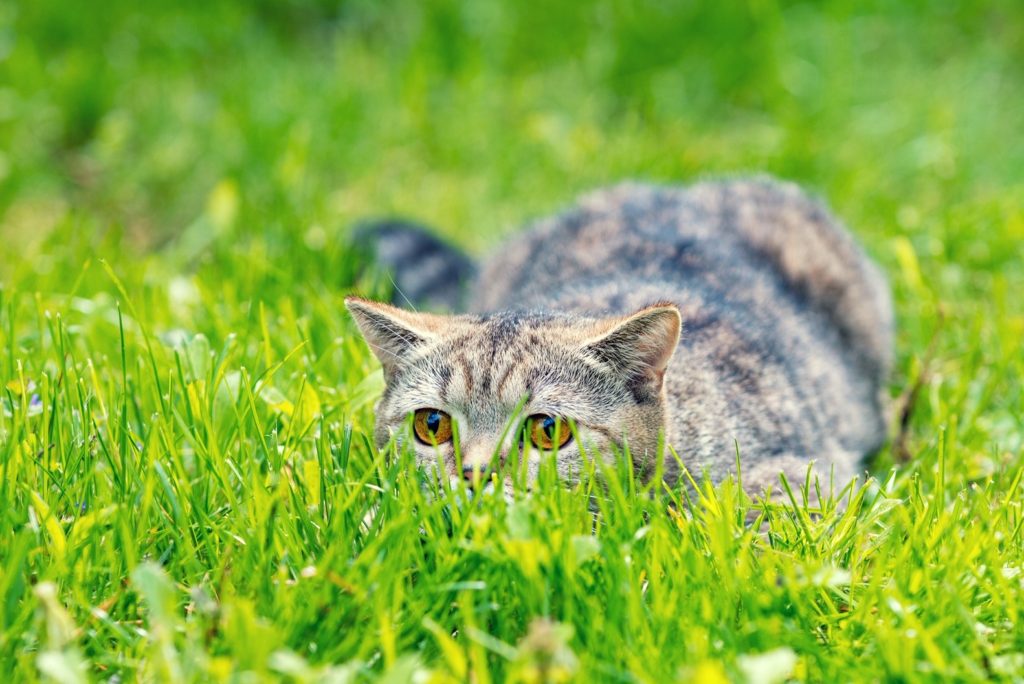
Why do cats eat grass?
For a long time now, cat owners have always known that cats do eat grass but there was always uncertainty as to whether this was a good thing or not. Most cats seem to vomit after eating grass hence the uncertainty over whether or not eating grass should be allowed. Cats are ‘obligate carnivores’, this means that they must eat meat to be healthy. There are certain vitamins and amino acids that are only found in meat that are essential to a cat growing up and maintaining good health. And so, any plants or vegetation is not classed as essential foods to cats.
The theories from various experts on the benefits of grass to cats include:
Digestive properties
- Some believe that cats will chew grass to help the removal of the non digestible element of any prey they consume such as fur, feathers and bones. Cats do not have the required digestive enzymes to process the grass and so will throw up after consuming grass. As well as the grass, any fur and other non-digestible items will also be removed via vomiting.
- Aiding relief of constipation – the grass can help by acting as a natural laxative. If the fur-ball has moved too deep into your cat’s digestive system to be expelled by regurgitation then the grass, or more specifically – the fibers in the grass, can help to pass the fur-ball through the system to be passed out of the body at the other end.
- Grass contains folic acid (vitamin B9) which has digestive properties as well as supporting healthy growth. A mother’s milk will provide her kittens with folic acid but grass can provide this nutrient after weaning.
Anxiety and behavioral issues
- Some experts believe that constantly seeking grass or plants for eating is a sign of anxiety in cats. It may be that the constant chewing is soothing. If this is something you observe in your cat’s behavior, please seek professional advice from your veterinary.
Are there scientific studies on why cats eat grass?
Until recently all the above reasons for cats eating grass were simply theories with no conclusive research to confirm any observations. But in 2019 the University of California Davis School of Veterinary Medicine conducted research into domestic cats and their grass eating habits. (For further information please visit https://www.sciencemag.org/news/2019/08/mystery-solved-why-cats-eat-grass). Some of the main finding from this research were:
- 71% of the cats in the survey were seen eating grass. In this mix there was no correlation to eating grass and age ranges, neuter status, number of cats in the household or source of grass.
- Over 90% of cats exhibited normal behavior before eating grass.
- 27% of the cats were seen to be vomiting after eating the grass.
- Older cats seemed more prone to vomiting than younger cats.
- The study showed that it is highly unlikely that younger cats learn to eat grass from older cats.
- Eating grass is very unlikely to be associated with an illness.
It is likely that eating grass is an inherited instinct from their ancestors. Before cats were domesticated over 10, 000 years ago it is believed that the process of eating grass would help to remove worms for the intestines and reduce the number of parasites in the intestine. Although this is only one study is does heavily point towards the fact that cats eating grass is a perfectly normal instinct.
Do indoor cats need grass?
Based on the above findings it can be stated with reasonable certainty that providing indoor cats with grass will be beneficial. By providing a safe source of grass for indoor cats this will reduce the risk of them seeking the benefits of grass from other greenery and potted plants in your home. Many house plants are not suitable to be ingested by cats. Some plants are so poisonous that they can cause severe damage or even result in death.
How to provide grass for your indoor cat
There are a few options available when considering how to give your indoor cat access to grass:
- If you have a catio for your cats, this can be the perfect place for them to access grass as and when they want to. Place a little grass area in your catio by planting some grass in a pot or allocate a little corner as a grassy area.
- Allowing your indoor cat safe access to the outside. This can be achieved in several ways. This can include taking your cat for a walk on a harness, time in a cat run or providing a secured, enclosed garden. We have dedicated a whole article in exploring these options in detail if you require further details, ‘Does my indoor cat need outside time?’. By allowing our indoor cat safe access to the outdoors, many of a cat’s natural instincts, including eating grass, can still be satisfied. This will also include exploring new spaces, investigating smells, and marking their territory. Ensure that any grass accessible to your kitty outside is free from any chemicals, pesticides, or herbicides.
- Simply buy ready grown cat grass. Many pet shops and online retailers sell cat grass ready to be tasted, investigated, and eaten by your cats.
- Grow your own pots of cat grass for the house. There are many kits available complete with seeds, compost, and pots. Some companies even offer a subscription service providing ready grown cat grass or seed sets sent to you every month. This can ensure that you need never worry again about running out of cat grass or waiting for the seeds to grow.
Here are some of our online finds for cat grass:
This Organic pet Grass kit provides everything you need including organic seed, organic soil and a cute kitty themed planter.
Catit are a well recognised brand among cat owners, here is the Catit grass planter. Seeds do not come when the planter itself is purchased but the seeds can be purchased from Catit separately.

Is cat grass the same as regular grass?
Cat grass is a specific type of grass which is grown specifically for cats to chew and digest. There are different varieties but is it essentially grown from wheat, oats, barley or rye seeds. By growing, or providing ready grown cat grass, you know with certainty that it is safe for your cat. Outdoor cats may indeed chew on grass grown outside such as your lawn. This is fine but it cannot be known with certainty if any outdoor grass has been treated with any pesticides or fertilizer which may cause harm to your cat.
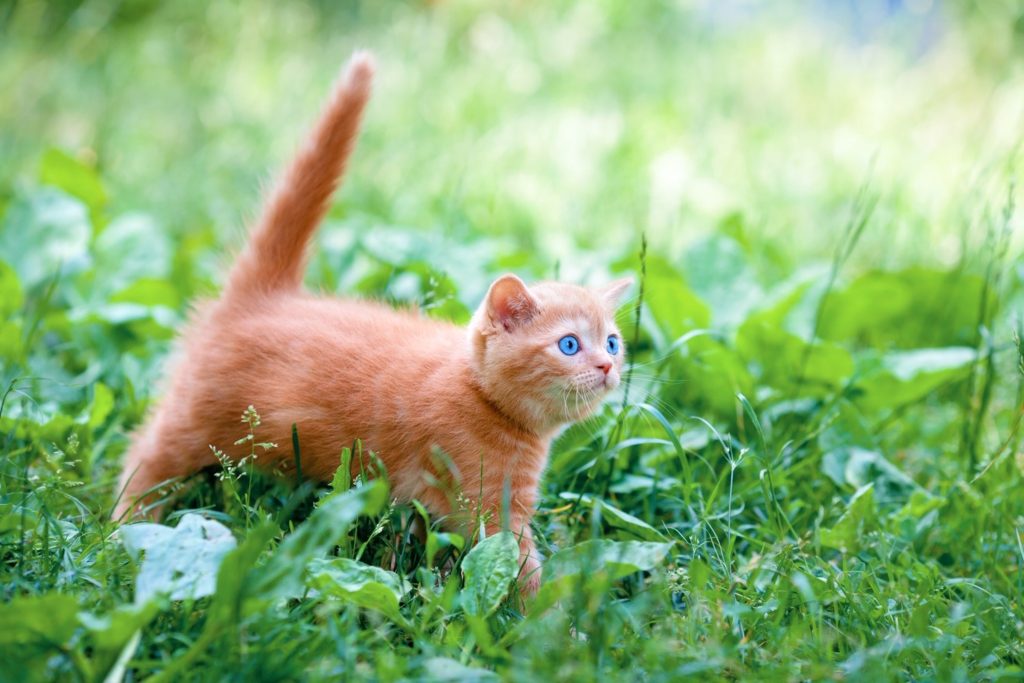
Benefits of cat grass
There are many benefits to buying or growing your own cat grass. These benefits include:
- Helping digestion
- Help your cat to deal with fur balls
- Allowing your cat to partake in a natural instinctive behavior
- Provide some water intake
- Provide mineral and nutrients
- Helps to prevent and ease constipation
- Ensures you are providing your cat with a safe, no toxic, non polluted cat grass
______________________________________________________________________________________________________________________________________
Other articles you may find of interest:
Why does my cat eat spider webs/cobwebs? Why does my cat eat spiders?
Does my cat need a cat tree? A complete cat tree guide!
Why do cats need a scratching post?
Creating the ultimate cat friendly garden – 10 top tips
